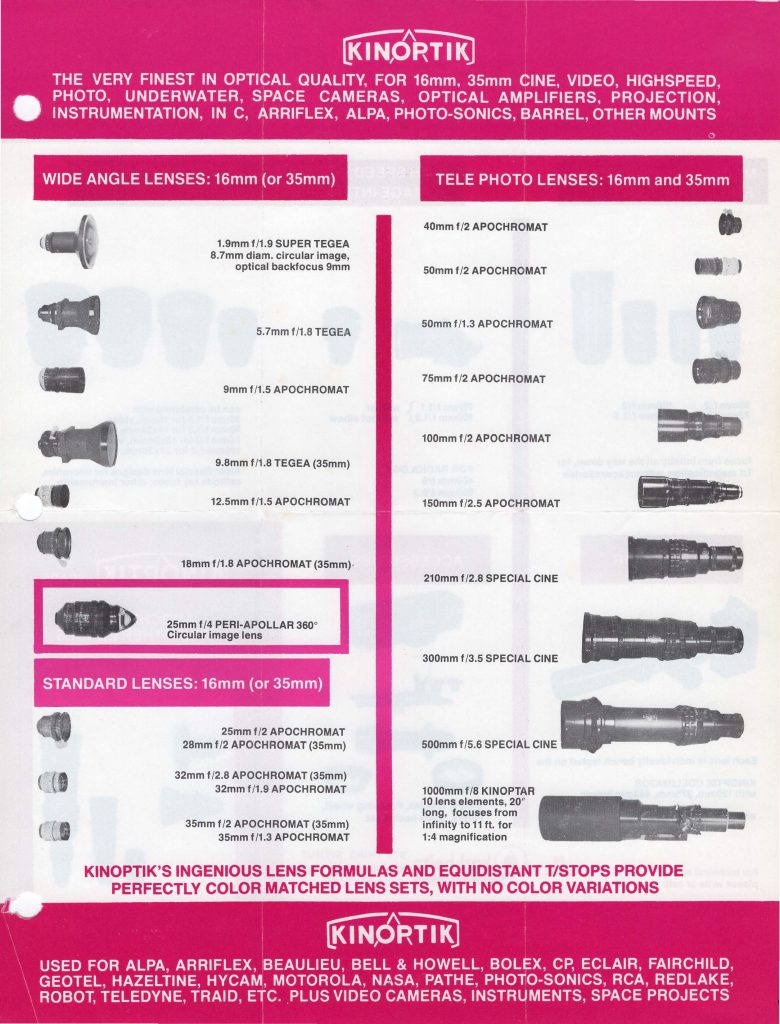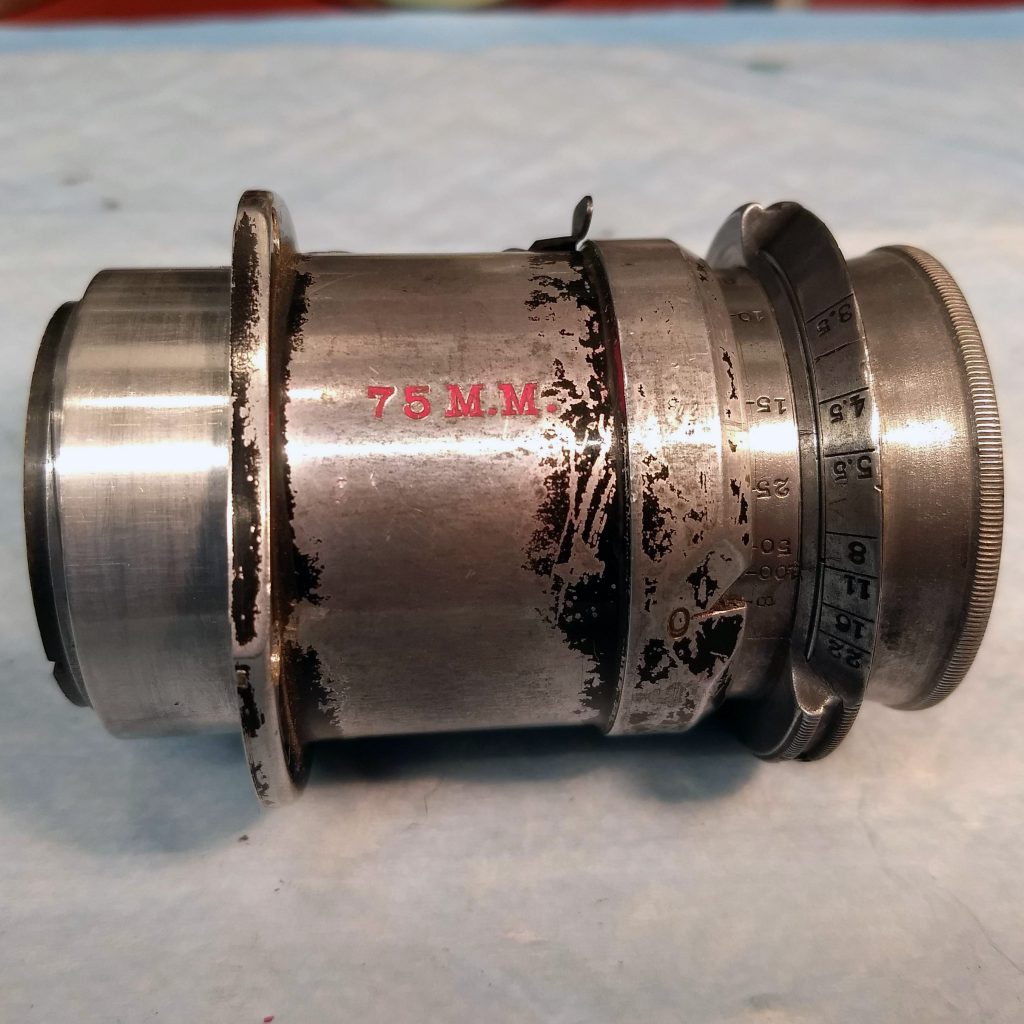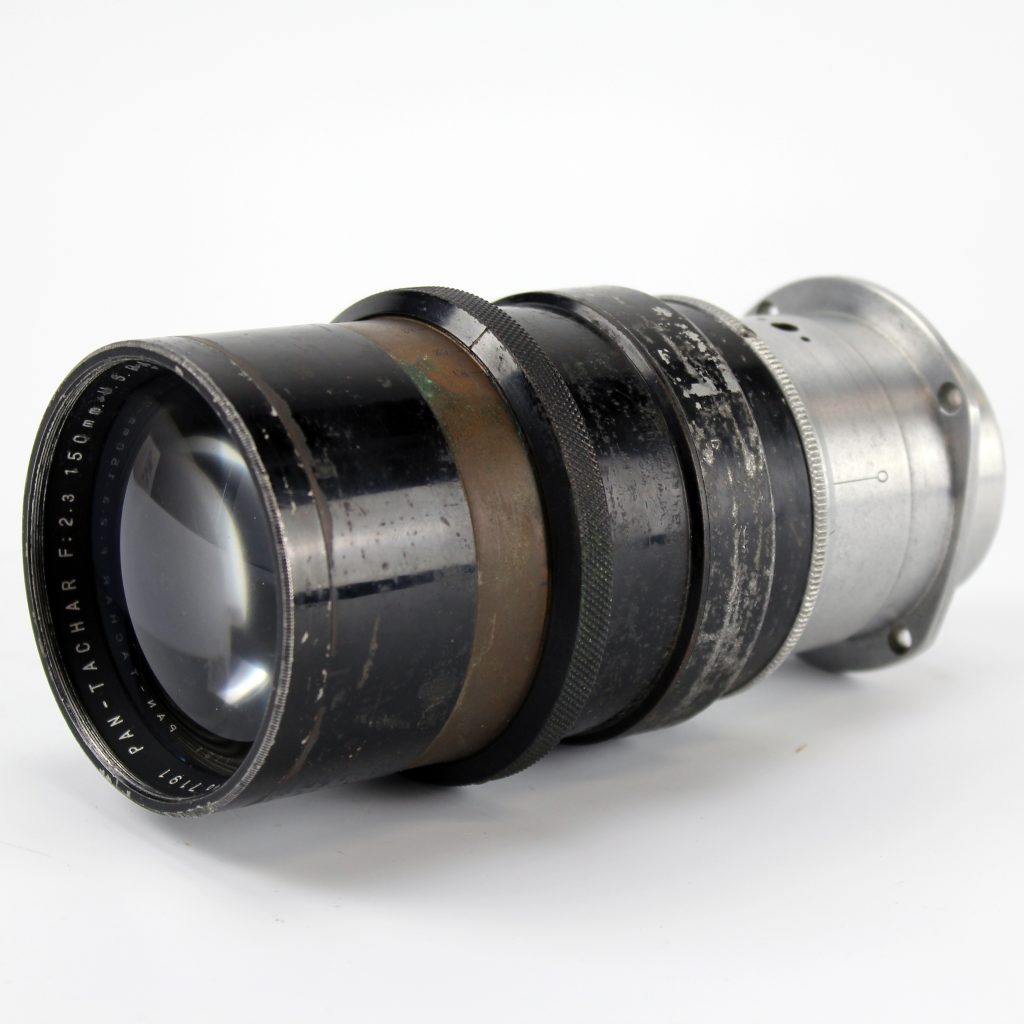We are excited to offer these excellent Kinoptik Apochromat 75mm and 50mm f2 lenses, both in Eclair CM3 mount. Here at CinemaGear, we love to share a little bit of history along with the filmmaking equipment we offer, but much of the history of Kinoptik remains an enigma to us. Kinoptik was a boutique French lens manufacturer, founded in Paris in 1932 by Georges Grosset and Georges Perthuis. The two Georges had previously worked at Optis, another French lens maker that, interestingly, had also employed Pierre Angenieux.
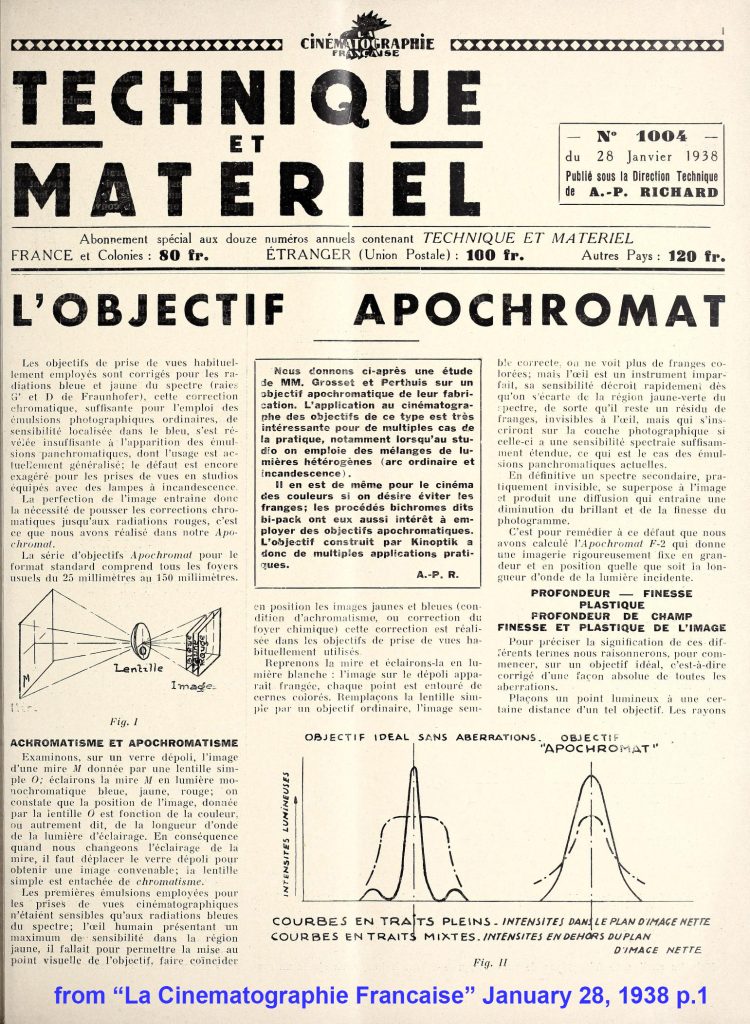
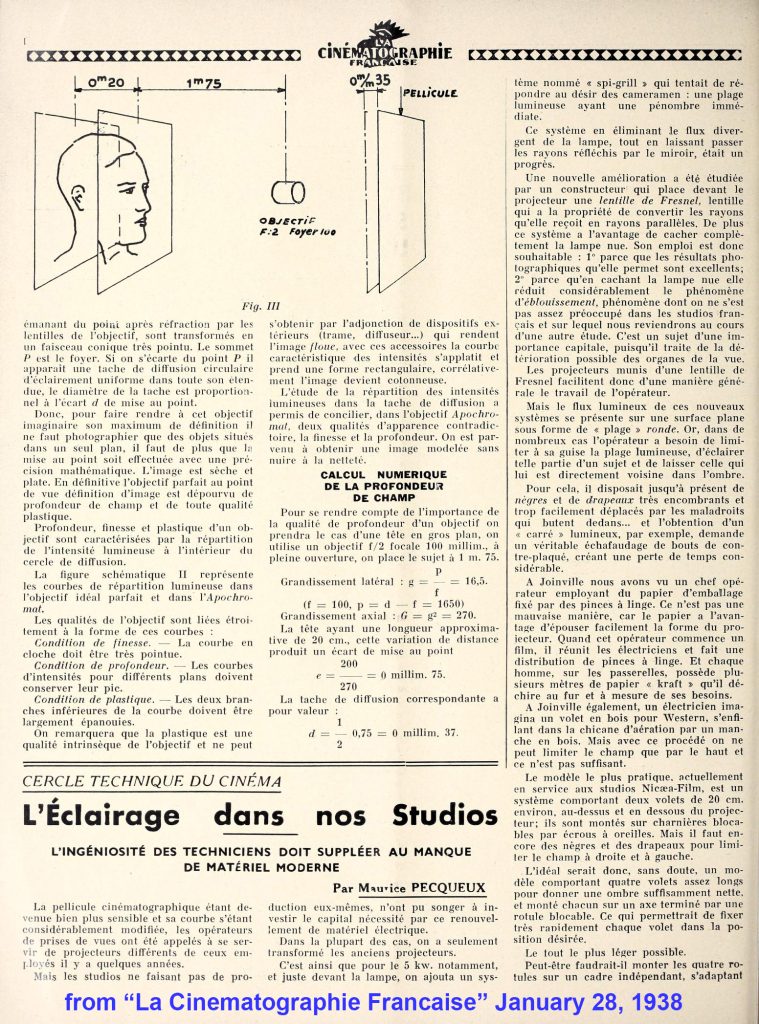
Everything was done in-house at Kinoptik, from the design, to the manufacture, to the final inspection of each lens. The Apochromat series of lenses was designed by Grosset and introduced in 1939 in 25mm, 28mm, 35mm, 40mm, 50mm, 75mm and 100mm focal lengths. The Apochromat lenses are of the double Gauss type and are world famous for producing sharp, saturated images with good contrast and accurate color reproduction. They remained available in the Kinoptik sales catalog well into the 1990s.
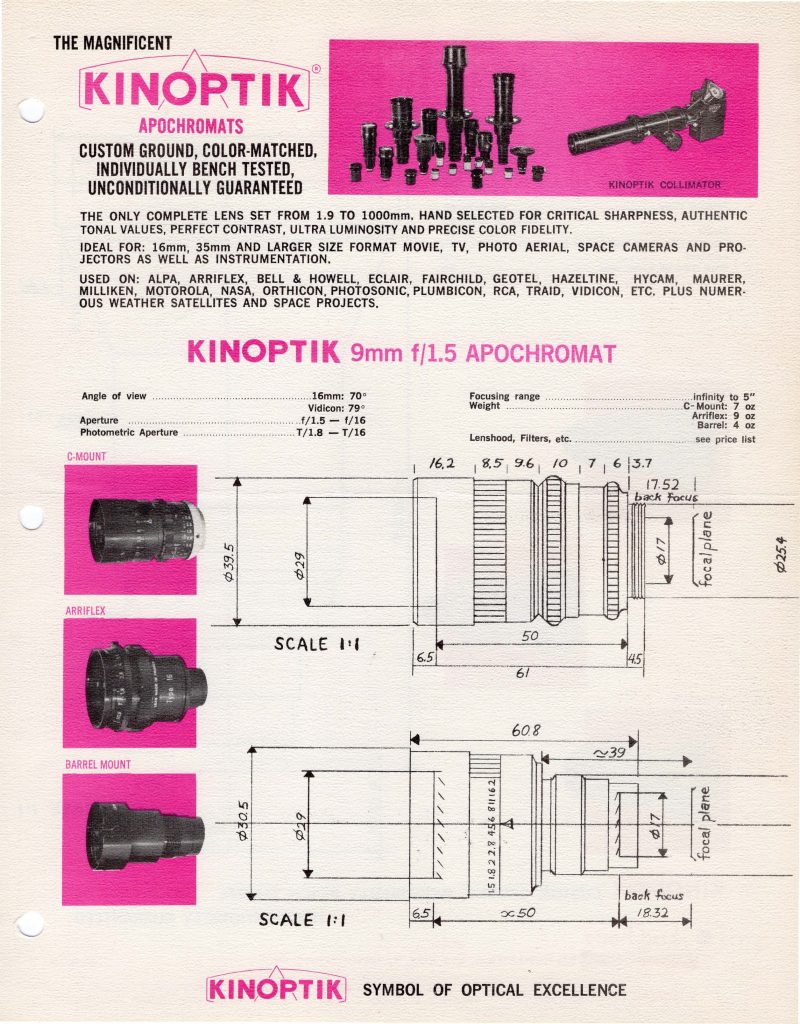
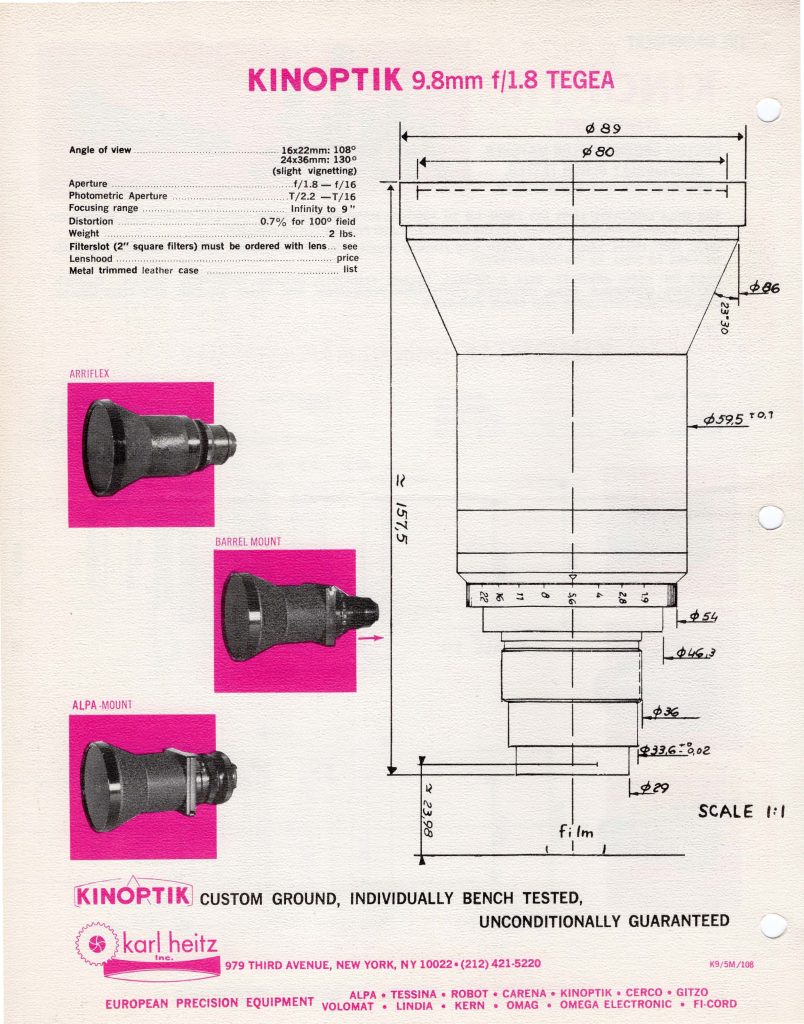
When the second World War came to France, Kinoptik lost their first workshop to a bombing, but were able to relocate to a new location in Paris not long after. During the German occupation, the company was forced to produce viewfinders for the Askania cameras for the German military. After the war, Kinoptik returned to making the high quality lenses they were best known for. In the post-war period, the Apochromat lenses were a popular choice for the French New Wave movement, and were frequently used with an Eclair CM3 / Camerette camera.
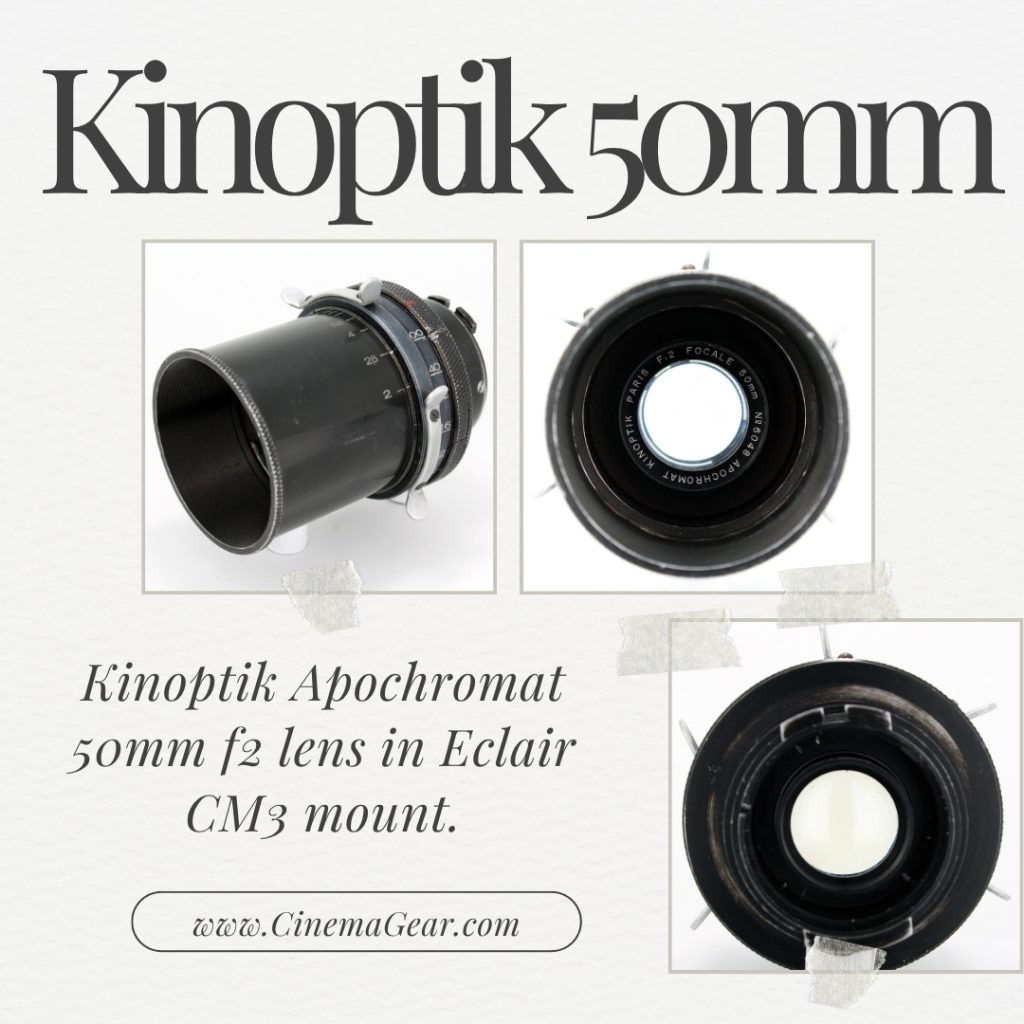
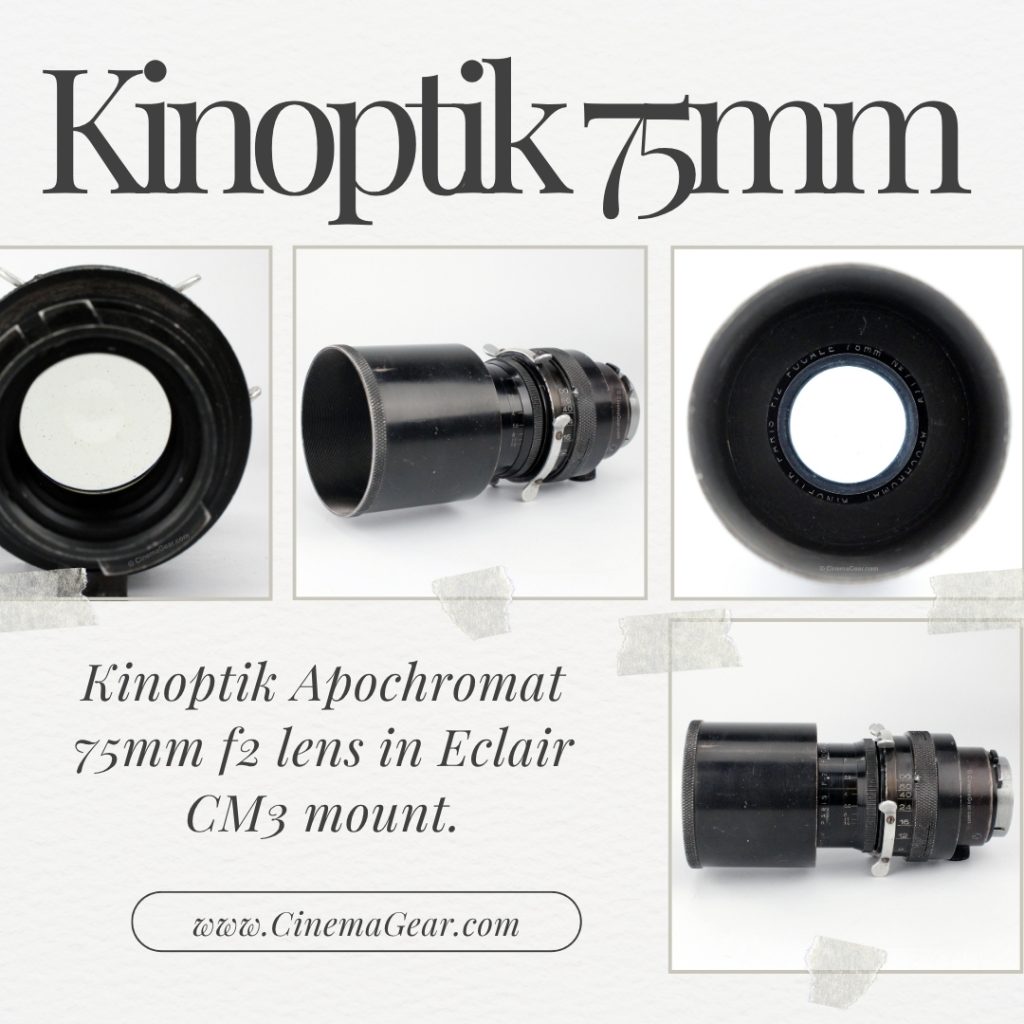
Following Georges Grosset’s death, his wife hired French optician Edgar Hugues to take over her late husband’s design work for the company. In the mid-1960s Hugues designed the unique, groundbreaking Kinoptik Tegea 9.8mm f1.8 wide angle, rectilinear lens, famous for its non-distorted wide angle view. The Tegea lens saw use by Stanley Kubrick in the 1970s and 80s on such films as “A Clockwork Orange” and “The Shining”, and in the 1990s by cinematographer Christopher Doyle in his collaborations with director Wong Kar Wai, on films such as “Chungking Express” and “Fallen Angels”. In 1981, Roger Grosset, the son of Georges Grosset, sold Kinoptik to Société française d’Instruments et de mesure. After a series of mergers and acquisitions, Kinoptik went into receivership and eventually ceased operations in 2018. The legacy of Kinoptik lives on in the high quality lenses they created during their more than 80 years serving the film industry.
